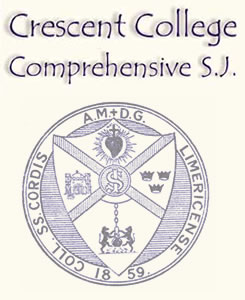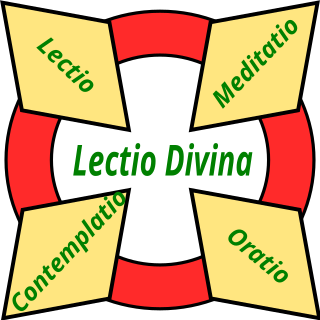Computer and network surveillance is the monitoring of computer activity and data stored locally on a computer or data being transferred over computer networks such as the Internet. This monitoring is often carried out covertly and may be completed by governments, corporations, criminal organizations, or individuals. It may or may not be legal and may or may not require authorization from a court or other independent government agencies. Computer and network surveillance programs are widespread today and almost all Internet traffic can be monitored.
Internet privacy involves the right or mandate of personal privacy concerning the storing, re-purposing, provision to third parties, and displaying of information pertaining to oneself via Internet. Internet privacy is a subset of data privacy. Privacy concerns have been articulated from the beginnings of large-scale computer sharing and especially relate to mass surveillance enabled by the emergence of computer technologies.
A social networking service or SNS is an online platform which people use to build social networks or social relationships with other people who share similar personal or career content, interests, activities, backgrounds or real-life connections.

Crescent College Comprehensive SJ, formerly known as the College of the Sacred Heart, is a secondary school located on 40 acres (160,000 m2) of parkland at Dooradoyle, Limerick, Ireland. The college is one of a number of Jesuit schools in Ireland.

In Western Christianity, Lectio Divina is a traditional monastic practice of scriptural reading, meditation and prayer intended to promote communion with God and to increase the knowledge of God's word. In the view of one commentator, it does not treat Scripture as texts to be studied, but as the living word.
The Messenger of the Sacred Heart is a Roman Catholic periodical; the print organ of the Apostleship of Prayer, a pious association founded in nineteenth century France by the Jesuits. There are many editions in various languages, promoting devotion to the Sacred Heart of Jesus. In the late 1940s, The Messenger was banned in many Soviet Block countries.

HTTP cookies are small blocks of data created by a web server while a user is browsing a website and placed on the user's computer or other device by the user's web browser. Cookies are placed on the device used to access a website, and more than one cookie may be placed on a user's device during a session.
The Ecumenical Miracle Rosary or "ecumenical rosary" is a set of prayers for ecumenical use associated with the Roman Catholic rosary. The Ecumenical Miracle Rosary presents a core format whose theme is believed by its creator to be central to any Christian denomination.

In computing, a private message, personal message, or direct message refers to a private communication sent or received by a user of a private communication channel on any given platform. Unlike public posts, PMs are only viewable by the participants. Though long a function present on IRCs and Internet forums, private channels for PMs have recently grown in popularity due to the increasing demand for privacy and private collaboration on social media.
There are two types of prayer in the Baháʼí Faith: obligatory prayer and general or devotional prayer. Both types of prayer are composed of reverent words which are addressed to God, and the act of prayer is one of the most important Baháʼí laws for individual discipline. The purpose of prayer in the Baháʼí Faith is to grow closer to God and his Manifestation and to help better one's own conduct and to request divine assistance.
Google Friend Connect was a free social networking site from 2008 to 2012. Similar to Facebook Platform and MySpaceID, it took a decentralized approach, allowing users to build a profile to share and update information via third-party sites. These sites acted as a host for profile sharing and social exchanges.

Men and women use social network services (SNSs) differently and with different frequencies. In general, several researchers have found that women tend to use SNSs more than men and for different and more social purposes.

Digital privacy is often used in contexts that promote advocacy on behalf of individual and consumer privacy rights in e-services and is typically used in opposition to the business practices of many e-marketers, businesses, and companies to collect and use such information and data. Digital privacy can be defined under three sub-related categories: information privacy, communication privacy, and individual privacy.
Since the arrival of early social networking sites in the early 2000s, online social networking platforms have expanded exponentially, with the biggest names in social media in the mid-2010s being Facebook, Instagram, Twitter and Snapchat. The massive influx of personal information that has become available online and stored in the cloud has put user privacy at the forefront of discussion regarding the database's ability to safely store such personal information. The extent to which users and social media platform administrators can access user profiles has become a new topic of ethical consideration, and the legality, awareness, and boundaries of subsequent privacy violations are critical concerns in advance of the technological age.

A Microsoft account or MSA is a single sign-on Microsoft user account for Microsoft customers to log in to Microsoft services, devices running on one of Microsoft's current operating systems, and Microsoft application software.

Doug Leeds, is the Chief Executive Officer of IAC Publishing, a digital media operating group launched on December 9, 2015, by media and Internet conglomerate IAC. The single digital media publisher reaches 100 million monthly uniques according to comScore October 2015 numbers and includes publishing brands About.com, The Daily Beast, Investopedia and Dictionary.com. Digital publishing is one of four key areas of strategic focus for IAC, as Leeds noted to the WSJ, saying that “bringing the sites under one umbrella will allow IAC to combine their strengths.” Leeds previously held the title of Ask.com CEO since 2010.

Alexander Aloysius "Alan" McGuckian SJ is a Roman Catholic prelate and theologian from Northern Ireland who has served as Bishop of Raphoe since 2017.
Meta Platforms Inc., or Meta for short, has faced a number of privacy concerns. These stem partly from the company’s revenue model that involves selling information collected about its users for many things including advertisement targeting. Meta Platforms Inc. has also been a part of many data breaches that have occurred within the company. These issues and others are further described including user data concerns, vulnerabilities in the company’s platform, investigations by pressure groups and government agencies, and even issues with students. In addition, employers and other organizations/individuals have been known to use Meta Platforms Inc. for their own purposes. As a result, individuals’ identities and private information have sometimes been compromised without their permission. In response to these growing privacy concerns, some pressure groups and government agencies have increasingly asserted the users’ right to privacy and to be able to control their personal data.
Shadow profile describes the situation when users' or non-users' information is collected without their consent. One of the most discussed cases of shadow profiling is on Facebook, which is reported to collect information on people which they did not provide.

Pray As You Go is a daily prayer website, podcast and application that was created in 2006 by the Jesuits in the United Kingdom. Since its founding it has been adapted into nine other languages and as of 2020, it is used 30 million times a year.











